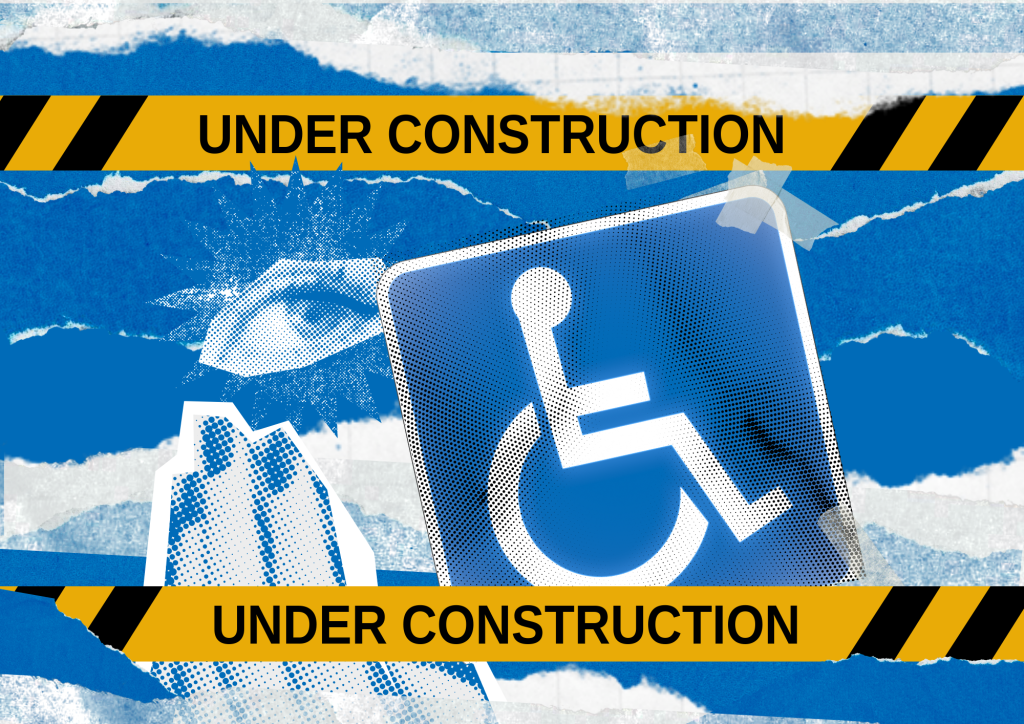
Amidst construction of the East End Neighborhood, larger class sizes than ever, and increased rates of students identifying as disabled, Rollins College continues their efforts in accessibility on campus.
Despite the college’s “mission to champion equal access for the entire campus community,” students who utilize Accessibility Services have cited a decrease in the quality of services and accommodations offered. An email poll of students showed that 33.3 percent of respondents felt accessibility services on campus have “diminished greatly,” whereas another 33.3 percent felt there was neither an improvement nor deterioration.
Myles Kitchin (‘25) summarized his feelings about the changes to Accessibility Services. “Budget cuts, bad software, poor trained employees, bad location,” he said.
Bethann Durlin, Director of Accessibility Services at Rollins, acknowledged the overwhelmingly negative student response to this year’s changes. Regarding the testing accommodation changes, she said, “The privacy screens are not very private. That was an error on the vendor’s part, so we are waiting for those to be replaced.” She noted that the current privacy screens provided are 18 inches in size and that the expected ones are to be 24 inches.
Despite the efforts of Durlin and her team, one anonymous student said, “Students are taking exams in large spacial areas that are shared with numerous other students. In the previous years, students could schedule exams in individual rooms where the student could quietly focus on their exam. I also noticed that the staff who work at the accessibility services are not as well organized.”
Durlin said there are still three individual rooms reserved for testing but that testing accommodations are for “distraction-reduced testing, not distraction-free testing.” Students also expressed concern over changes to the note-taking software the college uses, which Durlin also sympathized with. “I inherited that note-taking software when I started in 2021 and had some dissatisfaction with them previously. It has been on my agenda to look into other options.” Accessibility Services uses third-party software, which internally decided to change to MessengerPigeon, the current option for students.
“I am just as frustrated with it as the students are. The problem is, changing a service like that doesn’t happen overnight. With Accommodate to AIM, it took over a year,” said Durlin. “We will be doing trials of new services in the spring and have asked for volunteers via email. I have a starting list of students, and they will still have MessengerPigeon as a backup if the trials are not working,” she said. The timeline is to conduct trials this spring and officially switch software this summer. This leaves students with an admittedly faulty accommodation for the rest of the academic year.
Several students referenced a lack of communication from Accessibility Services staff as a major pressure point. Myles Kitchin (‘25) said, “There is a lack of communication between faculty and accessibility services.” Anna Franiak (‘27) said, “I know they’ve begun a new program, but I don’t know much about it. I feel like there is no communication about Accessibility Services.”
Durlin acknowledged that despite her 22 years of experience, she and her department are not perfect. She also gestured to her office door and expressed that it is open for students with concerns about their individual accommodations. “For example, if a student feels like they have a need for a private testing space I am happy to consider that, but they have to substantiate that with proper documentation. I will work within the best practices of this organization to accommodate that. I also absolutely welcome students to attend Accessibility Improvement Project meetings,” said Durlin.
The Accessibility Improvement Project “was born out of the 2019 audit conducted on the physical campus. When I started in 2021, that project had been hijacked by COVID, so I reopened that initiative, and with the help of facilities, we created this committee. It’s a means by which our campus community members can be heard and be part of the prioritization of accessibility improvements on campus,” said Durlin. She also encouraged students to take advantage of the Project’s page on MyRollins, which includes a feedback survey and barrier report form. Note the barrier report form is also listed under the “Report an incident” option on the homepage of MyRollins.
Durlin spoke to other new initiatives on campus as well. She cited her NeuroNavigators Resource Group as a “passion project:” a collective that creates a transitional space for incoming students as well as current students who identify as autistic. “Through a gift donated by an alum, we have hired a student liaison for students in the program. She works with them by holding workshops, social engagement, etc. The last workshop was about working in group projects, and we also invited new students to come in for early move-in. Anyone who identifies as autistic can join at any time. It is completely optional,” said Durlin.
Still, students remain wary of accessibility initiatives. One anonymous student said, “There should be an increased understanding from the faculty that all students with disabilities are different, and you cannot expect every person with the same disability to benefit from the same strategy/aid (especially with ADHD and anxiety). There should be a willingness to find a plan that works for individuals, rather than the disorders.”
Students also expressed concern over the physical accessibility of campus, separate of the Accessibility Services’ current initiatives. Ollie Gasparini (‘26) said, “The only dorm with rooms that met my accommodations closed. Staff have just also made things inaccessible, like golf carts parked on ramps and such. The new testing center is also not as accessible as the previous one and has made it harder for me to take tests.”
Anna Franiak (‘27) also expressed disappointment in the physical accessibility of campus. She said, “I want to see buildings modified, like having accessible doors with power buttons to open them (specifically the main Lakeside ramp), even elevators in the older buildings. I would love to see gender-neutral bathrooms and accessible rooms in all the buildings. I know in Ward Hall the accessible room layouts are all on the fourth floor, which means students have to rely on an unreliable, old, small elevator to get to their rooms.” The main ramp Franiak referenced is one of few mobility-aid accessible routes to the inner-hallways of Lakeside Neighborhood and does not have a handicap door push.
Director Bethann Durlin reassures that not only has her departmental budget stayed the same amidst campus construction but also that the Accessibility Improvement Project has its own dedicated budget that can be allocated toward improvements like adding such door pushes or refurbishing cracked pavement that makes it difficult to operate a wheeled mobility aid.
For more information about accessibility on campus, please visit MyRollins and search under the tag “Accessibility Services”. For interested students and faculty, the next Improvement Project meeting will be held on January 22 at 4:00 p.m. in the Olin Library.

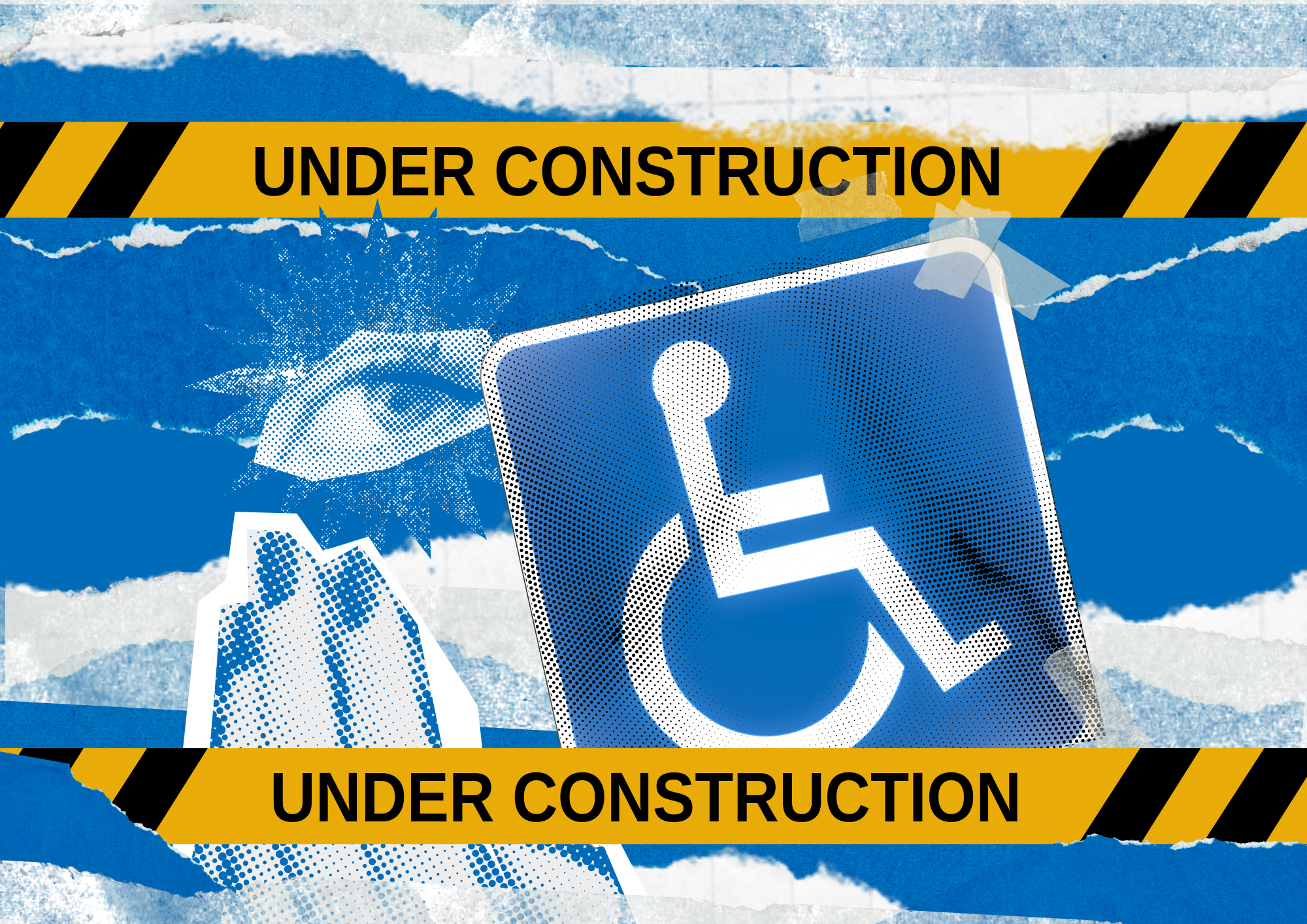
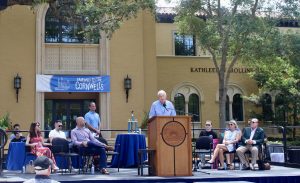

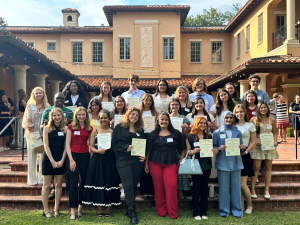
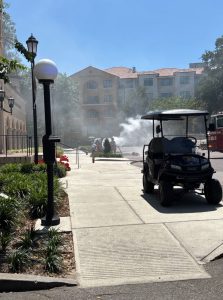
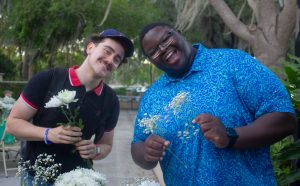

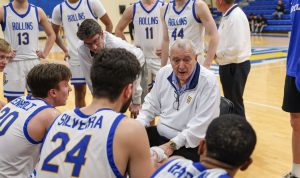
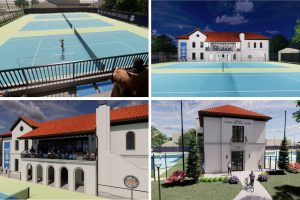


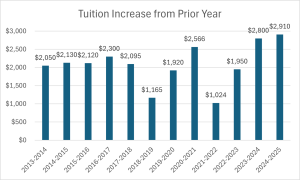


Comments are closed.